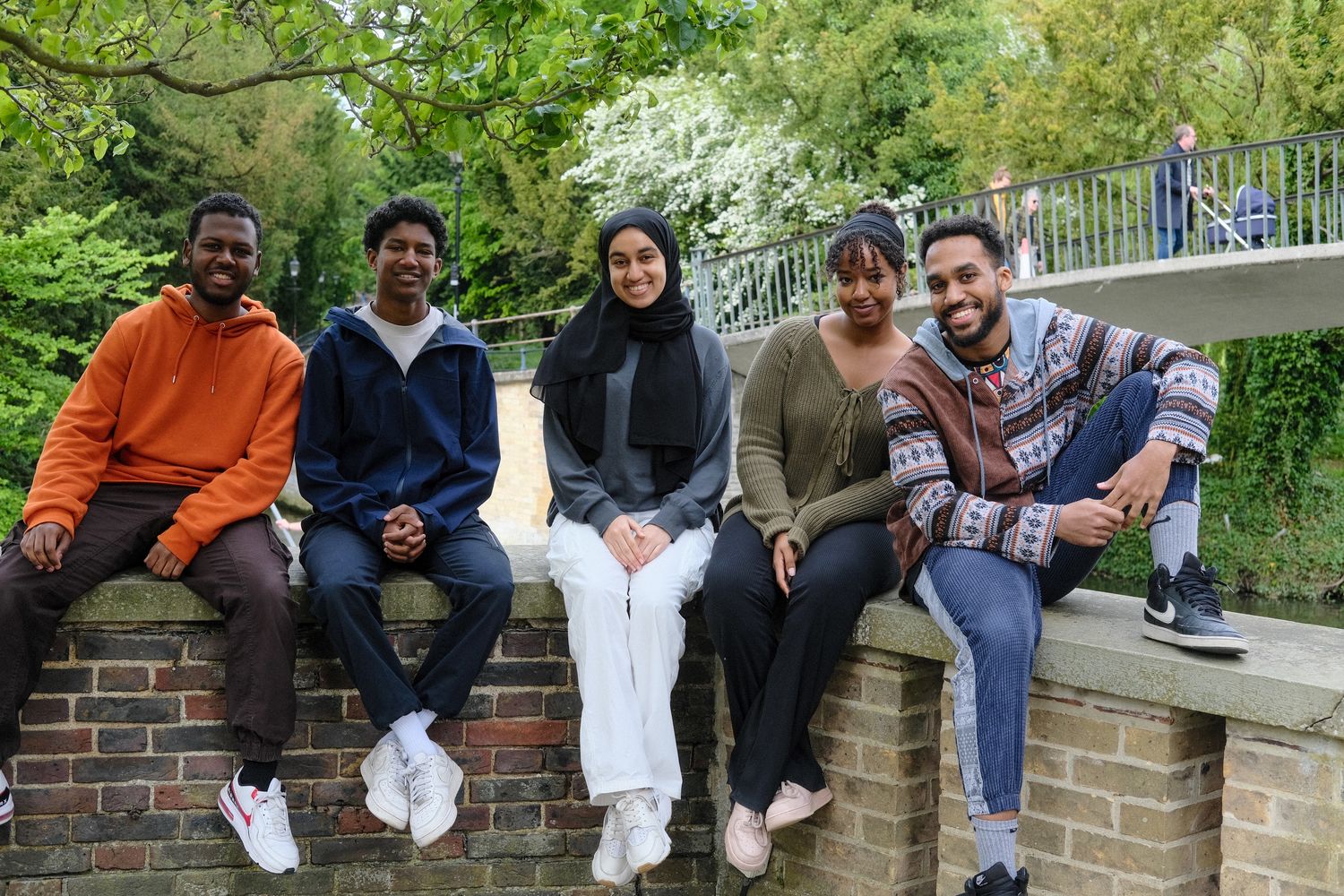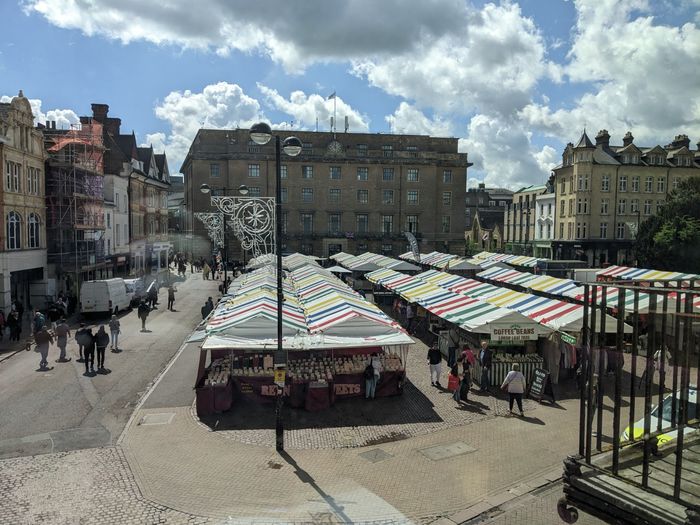Yusuf is in his first year at Cambridge, studying medicine at Fitzwilliam. 3,000 miles away in Khartoum, his grandparents, cousins, aunts, and uncles have seen their home city turned into a battlefield. Some of his family has fled to Egypt: a long trip by bus, with days spent waiting at the border for visas. His aunt died on the journey, he tells me.
His family are now far too worried to take his grandparents on the same route, meaning that he is approaching his first year exams, knowing that they are all trapped in a city with bullets flying through the windows and missiles overhead.
I meet with members of Cambridge University’s Sudanese Society on a peaceful Monday morning in Trinity Hall, home to the society’s president, Aala. A third year politics student, she, like many others, has family living in the crossfire between the two warring groups: the Sudanese Army and the Rapid Support Forces (RSF).
Cambridge and Khartoum seem like different worlds for most of us. But the gunshots that have incessantly echoed through the streets of Sudan’s capital for the last month are heard all too well by Cambridge’s Sudanese community.
Razan is the society treasurer, a second year politics student at Selwyn. Her father lives in Sudan, but was luckily not in the country when the fighting started. Most of her family have remained in the northern part of Khartoum, Khartoum Bahri, running a hospital in that third of the city. Mohammed, another medic, has heard from family that their home, abandoned after fleeing the city, has been turned into a makeshift base for the RSF.
The final member of the group is Tarig. He is a third year PhD physicist at Pembroke, who remembers studying for his final undergraduate exams during the Sudanese revolution in 2019. “I remember going to revise in the library, then at 3pm I would go out to protest, before coming back to do revision at 8pm” he tells me. His father is currently living in Khartoum, along with the rest of his family.
The roots of the current conflict lie in the revolution that Tarig protested about in 2019. In April of that year, Omar Al-Bashir, who had been the president of Sudan since 1993 and stands accused of genocide, crimes against humanity, and war crimes, was ousted. This revolution led to a transitional government, which was then meant to lead to a civilian-led government – but that transition is yet to materialise.
The country is now stuck in the middle of a power struggle between the Sudanese Army and the RSF, a group with strong links to the Janjaweed, who have been accused of committing the Darfur genocide which the UN states has claimed at least 200,000 lives and displaced two million people.
“The RSF are using the capital city and other big cities across Sudan as a battleground,” Aala says, and so people are having to choose between fleeing, and facing life as a refugee, or staying and “possibly losing their lives”. “It’s urban warfare”, Razan adds: “Bullets are coming into people’s homes, missiles are hitting people’s homes”.
As far away as they may all be from Khartoum, the members of the Sudanese Society are determined to make a difference. What started as a text from Razan’s dad, asking her for money to support the family hospital, has grown into something much bigger. “Of course I can donate,” she says, “but if I can get other people to donate too, even if it’s just £5, it will help a lot”.
The hospital treats people who have been injured in the conflict for free, and despite frequent power outages and being without water for over a month, Razan’s family are determined that it should remain open. They are the only hospital in the northern third of the city that is still running. The GoFundMe page that the society has created in collaboration with other Sudanese societies across UK universities has so far raised upwards of £20,000.
Razan, Aala, Mohammed, Yusuf, and Tarig are all humble, but they have good reason to be proud of themselves. They are juggling interviews with ITV, writing letters to the University, colleges, JCRs, senior tutors, and masters, various fundraising events, and social media activism with an Easter term full of its own stresses. All whilst the weight of the danger that their loved ones face every day lingers like a brooding storm cloud.
And yet, in Razan’s words, “the Uni doesn’t really care”. When she approached the University to make them aware of her personal circumstances in case she feels too overwhelmed to complete her exams, she was told to visit her GP. The University came to the conclusion that a note from her GP was required to prove that having family in midst of a bloody conflict was a mitigating circumstance.
It feels like being told that “Africans are used to war, so it’s fine”, Razan tells me. “If something were to happen in Europe, it’s like: ‘Oh my God! Europeans don’t deserve this.’” The proof of this attitude is perhaps not just that there has been no communication from the University reaching out in support of its Sudanese community, but also the fact that its Sudanese community “wasn’t expecting anything”.
The group agrees that an email from the University stating that they were thinking about their Sudanese colleagues and their families would have been welcome. “A little gesture like that goes a long way,” Tarig notes. Yusuf shares how supported he felt when the Indian Society did a fundraiser to help their cause; Razan mentions how touched she was when the Master of Selwyn reached out personally; Tarig smiles as he recalls the Imam at his Mosque saying a special prayer for Sudan.
More could be done to support those affected by the conflict in Sudan, both in Khartoum and in Cambridge. Aala emphasises the importance of even just trying to educate yourself, or of contacting JCRs, MCRs, masters, and senior tutors.
That Aala, Yusuf, Mohammed, Razan, Tarig, and the rest of the Sudanese community are even able to get into the library, attend supervisions, or function in daily life at the moment is beyond commendable. Most of them will sit potentially life-altering exams in the next few weeks whilst enduring what Aala calls a “constant lived experience”.
“My dad has six brothers and four sisters; they are quite dispersed, because of the war,” Tarig tells me. “One of my uncles only found out that his mum had died after they had buried my grandma. She passed away in my house, in Khartoum. She was quite elderly and bedridden, in hospital before the war kicked off.”
He recalls how his family had to move his grandma, even though she had only just had a food bag installed. First from the hospital to her home, and then to his dad’s home. His house hadn’t had electricity for the last three weeks, but it was the safest option. She became increasingly ill, but there was no way that they could get her to a hospital.
“She passed away yesterday.” A moment passes as these words hang in the air, before he repeats the word: “Yesterday”. He takes a moment to compose himself, and then continues. “The situation is quite volatile. You could have the same interview with us in a week’s time and all of our stories might change. Mine changed yesterday. You never know. It wasn’t sudden, her death – it was coming. But I feel like the conflict made her suffer that much more.”


